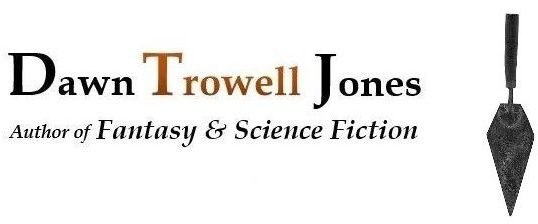 I say this as a progressive. I say it with respect and love—though you may wonder.
I say this as a progressive. I say it with respect and love—though you may wonder.
The novel I’ve written deals with some issues surrounding psychological development, particularly the need to feel productive and valuable within society at midlife. The fact is some don’t. But I’ve recently noticed other sci-fi and fantasy authors explicitly asking the question: What does it mean to be an adult?
 Where do we fit in? Do we have any sense of ownership anymore? Or has pretty much everything gotten away from us. As a backlash to overweening capitalism, in an hour of need, are we seeing the pernicious side of socialism creep in along with the good? Social movements have conservation of momentum. Like a pendulum, they swing, with consequences at every turn.
Where do we fit in? Do we have any sense of ownership anymore? Or has pretty much everything gotten away from us. As a backlash to overweening capitalism, in an hour of need, are we seeing the pernicious side of socialism creep in along with the good? Social movements have conservation of momentum. Like a pendulum, they swing, with consequences at every turn.
What are the hallmarks of adulthood? Is it independence? Autonomy? Think of how devastated older adults feel when they let go of driving. Some say it’s the symbolism more than anything, the loss of control. Meanwhile, many of the newer adults don’t want to pay the cost of owning a car and as a result have never even learned to drive. They value experiences more, they say. But both driving and being driven (Uber, airplanes) require a sacrifice of freedom to do what you want when you want in order to feel free to do what you want when you want in your remaining time.
I was taught you get to choose your own way only if you pay for it yourself, and having the ability to pay is to have control, and being in control is to be adult. This is what I was taught, though over time, an adult learns control is relative, as in the phrase “give a little, get a little.” Do these young adults really expect to find freedom like this, with fundamentals provided, so long as they settle on a boat and don’t rock it?
 Maybe they do. They may define freedom and basic rights differently, in a way that’s more comfortable for them. And for better and worse, I think, society will swing to suit them and over time acquire a more socialist, group-ownership feel. Lord knows, they have the numbers. What’s happiness, to them? Realizing their potential, I hear. Seems very reasonable. But this is what we have all wanted. It’s simply that as we grow older, our obligations tend to modify that definition a tad, and outside enablers come few and far between. For instance, writers don’t have sponsors anymore. But if the newer adults can’t thrive, if socio-economic obstacles bar their paths to happiness at the precise age when they’re psychologically driven to forge ahead, then they’ll go where they can however they can, as a matter of course. This may be the only way to meet the demands of the reality they’re experiencing, regardless of what anyone says it is. My generation, I think, strangely suspected old models didn’t apply to us, not in the same way they did to the boomers, and yet overall, we’ve ended up surprised and unprepared. And we do not have the numbers of the generations that came before or after.
Maybe they do. They may define freedom and basic rights differently, in a way that’s more comfortable for them. And for better and worse, I think, society will swing to suit them and over time acquire a more socialist, group-ownership feel. Lord knows, they have the numbers. What’s happiness, to them? Realizing their potential, I hear. Seems very reasonable. But this is what we have all wanted. It’s simply that as we grow older, our obligations tend to modify that definition a tad, and outside enablers come few and far between. For instance, writers don’t have sponsors anymore. But if the newer adults can’t thrive, if socio-economic obstacles bar their paths to happiness at the precise age when they’re psychologically driven to forge ahead, then they’ll go where they can however they can, as a matter of course. This may be the only way to meet the demands of the reality they’re experiencing, regardless of what anyone says it is. My generation, I think, strangely suspected old models didn’t apply to us, not in the same way they did to the boomers, and yet overall, we’ve ended up surprised and unprepared. And we do not have the numbers of the generations that came before or after.
Sometimes the newer generations appear to be locked in a battle for social control against the boomers, as if a little giddy with the power they in fact have but don’t understand—and scarcely believe—brandishing culture as a soft weapon of choice. What culture, you ask? The ‘politically correct’ subculture, of course. A clever solution. But the problem is, they think they own it. They think they’re different from the hate-mongers in this. But, those of the swallowed generation—the sandwiched generation—with a little life experience and possibly better schooled in history, know that this solution is slippery. People are ill-equipped to hold onto such a beast. It’s destined to be hijacked by other causes which are much older and less diffuse. Perhaps crueler.
Consequences. We’ll own them whether we want to or not.
Moving on…
Restraint and regimen: A friend in her forties suggested that this might be what makes an adult. Yes, I agree, and helpfully, it runs a little counter to the independence and autonomy argument. The discipline to control one’s impulses and delay gratification, to conceive a plan and follow through, self-sacrifice, civic responsibility—the long vision—these are characteristics of an adult rarely found in children. And there’s a need fundamental to our psychological development in our middle years to see our efforts contribute to a greater good.
But how can there be a long vision while so many refuse to see? I’ve witnessed in too many intelligent adults at various ages an aborted twinkle in the eyes as the spark of understanding is actively quashed. Why? Because the world’s too much. Too complicated. On the individual level, the proper evaluation of each necessary step is exhausting. The average intelligent adult knows his house is a blight and its trash will grow to a heap the size of a mountain and outlast just about every great human endeavor imaginable. His politics are murky at best. He’ll claim he doesn’t know what’s real anymore because he doesn’t have the time or emotional energy to get close to it. Though bleakly, he suspects he can’t eat, drink, sleep, or move about without contributing to some imminent socio-ecological ruin. And so, when allowed a rare precious moment of peaceful escape, in exercise of what little freedom is actually left to him, he disregards and does not think. For if he truly acknowledged the magnitude of the calamity coming—the result of a long series of missteps he must perpetuate to thrive—he’d choke!
Well, some of us go ahead and choke a little from time to time. We try in small ways, sometimes alone, as best we can. But as a social animal, we move more securely in groups.
Efficiencies. This, I’ve read, is the one area of intelligence that, barring dementia, increases with age. Until death. That means we learn better and better ways of staying the course as we age. If true, one might say that as an adult ages, he is psychologically driven to stay the course.
If our greatest advances as a species have been the result of some sort of intellectual epiphenomenon, then, I guess, the last and most critical step in our psychological evolution will be the ability to assimilate constant change efficiently.
We’re not there. But in the meantime some sort of social construct might do. I’m beginning to think that’s how the newer adults see the problem. We’re not talking about a new species yet, either, rather ordinary adults in extraordinary circumstances. Embarking on a new path fills us with wonder, humbles us, makes us receptive and childlike—perhaps a clustering of traits that manifest together. If today’s middle-aged adult appears callow, perhaps it’s because he’s been constantly reinventing himself, adjusting to new lifestyles and new technologies in the midst of social upheaval: It requires an extraordinary effort now to live an ordinary life. That may be the good news. The bad news: Most will not get the chance to pay attention to anything long enough to become efficient at it. We may find that this little gift of efficiency is what allows for those all-important understandings we need concerning where we’ve been and where we’re heading: the wisdom of an era.
How do we maintain the flexibility of change while allowing enough stability for wisdom? The generations should unite. Or alternatively, we’ll be looking at sacrificing one or two to save the others. I think I know which goes first: mine.
Pop art shows us the secret of our dreams, what we wish for late at night: We want out, or someone to save us.
What can be said of today’s adults, young or old? They’re tired. A little theater, a festival, the safe abstraction, a little TV gore and spray—these are just the things to get tired blood boiling. The average person can’t handle more. And make no mistake: The entertained thrive, and go on, munching, half-asleep into the long—soon to be less long—sunset.
 And surprisingly, amid all this upheaval at the individual level, this busy-bee instability, many adults at all ages desperately crave sustainable change but feel it’s near impossible to know where and how to bring it about. And if they do, how to motivate others en masse to follow. Together, we’re the nuclear sub the size of humanity that can’t turn on a dime.
And surprisingly, amid all this upheaval at the individual level, this busy-bee instability, many adults at all ages desperately crave sustainable change but feel it’s near impossible to know where and how to bring it about. And if they do, how to motivate others en masse to follow. Together, we’re the nuclear sub the size of humanity that can’t turn on a dime.
The newest generations may be instinctively trying to pave the way for their own future developmental needs, those I’ve spoken of: stability, wisdom, and seeing the fruits of their labor further a good social system and a noble culture of which they can be proud. Impatient and perhaps not fully understanding the mechanics of what makes us unwieldy, they simply want all the upheaval out of the way now. But the only way I see to effect the sacrifice required—which is enormous—to bring about drastic changes within a single generation, let alone a part, is through socialism, where everyone is safe who moves in lockstep with the rest, and nobody loses out to or gains ahead of the other. Maybe that’s why the newer generations’ attitudes look so much like socialism from where older ones sit. I almost wonder if they’ve been sheltered too long at the wrong developmental stage. I don’t know. As I recall, children are expected to do as they’re told because they’re told without question or complaint. They’re told to play fair, not to brag, to share what they have with peers who don’t have (to maintain harmony, because a child is not responsible for not earning), to do assigned work, get fed, and get taken to lessons arranged for them. These are social abstractions that will someday help them realize their potential. All privileges are open to them at this stage regardless of skill or deserving, so long as they obey. Very much like socialism, isn’t it? You tell a child: “If you don’t have something nice to say, say nothing at all.” But say that to an adult, especially an adult who’s cut eyeteeth interacting with other adults, often with murky agendas in unsafe spaces, after having already mastered a measure of self-restraint, someone disinclined to say anything he thinks is unworthy or reckless. Say that to an adult, and he’ll know you plan to cheat him.
This is a difficult topic, and I’m not sure I’ve come close to doing it justice in this one small post. I thought I’d try.
Nevertheless, in short, the younger generations’ instincts may be right: The socialist model is easier to wield. Some of it will even be wise—we must simply be careful of unwanted momentum and the “package deal.” But the somber unflinching acceptance of responsibility for the consequences of whatever we do or don’t do is the truest test of an adult, I think. And remember: A pendulum swings.

You do know you have opened Pandora’s box.
We’ll see. Seemed worth saying. But right now I’m in Hilton Head, packing up my mother as Hurricane Irma heads our way…. An all-nighter. 😉